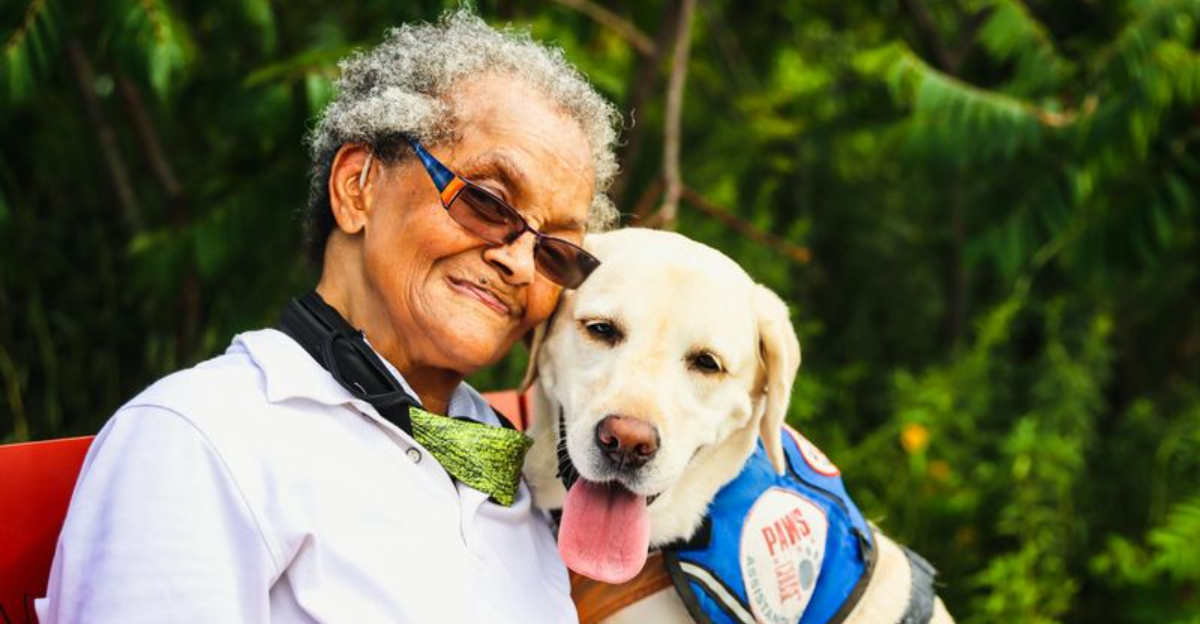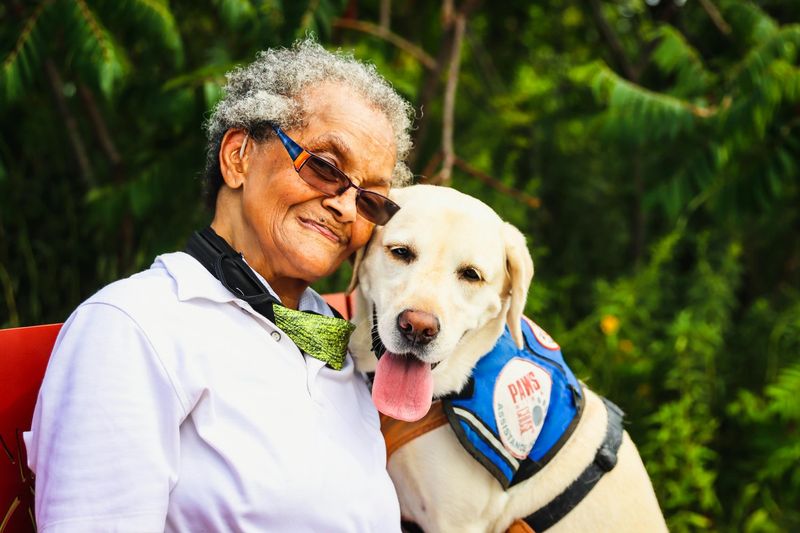These States Have The Most Registered Emotional Support Animals

Emotional support animals have become lifelines for millions of Americans coping with mental health challenges.
These furry companions provide comfort, reduce anxiety, and offer unconditional love to their owners. As regulations around these animals evolve, some states have emerged as hotspots for registered emotional support animals, reflecting both population trends and mental health awareness.
California Leads The Pack

Golden State residents embrace emotional support animals with open arms. The state’s progressive mental health policies and pet-friendly culture create the perfect environment for ESAs to thrive.
With over 40,000 registered emotional support animals, California outpaces every other state by a significant margin. Urban centers like Los Angeles and San Francisco account for nearly half of all registrations.
Florida’s Furry Support System

Sunshine and emotional support animals go hand-in-hand in Florida. The state’s large senior population relies heavily on animal companionship to combat loneliness and manage health conditions.
Florida’s warm climate makes year-round outdoor activities with support animals particularly enjoyable. The state has seen a 35% increase in ESA registrations over the past three years alone.
New York’s Apartment Companions

Despite tight living quarters, New Yorkers make room for emotional support animals. The hustle and bustle of city life often triggers anxiety and stress, making ESAs particularly valuable in this urban jungle.
Apartment buildings across the state have adapted policies to accommodate the growing number of support animals. Small dogs and cats reign supreme, but unusual companions like rabbits and ferrets are gaining popularity.
Texas-Sized Love For Support Animals

Everything’s bigger in Texas—including their love for emotional support animals. Rural communities particularly benefit from these companions, as access to traditional mental health services can be limited in remote areas.
Military veterans throughout the state frequently register support animals to help manage PTSD symptoms. The state’s abundant outdoor spaces provide plenty of room for larger support animals to thrive.
Pennsylvania’s Healing Helpers

College campuses across Pennsylvania have seen a surge in emotional support animals. Students managing academic stress and being away from home find comfort in these furry friends.
The state’s changing seasons mean ESA owners and their animals enjoy varied activities year-round. Pennsylvania’s robust mental health advocacy networks have helped normalize support animals in public spaces.
Washington State’s Calming Critters

Rainy days feel less gloomy with an emotional support animal by your side. Washington residents use ESAs to combat Seasonal Affective Disorder during the state’s notoriously gray winters.
Tech workers in Seattle particularly benefit from animal companionship to balance screen time and work stress. The state’s progressive housing laws have made it easier for renters to keep support animals despite no-pet policies.
Colorado’s Mountain Companions

Adventure-loving Coloradans take their emotional support animals everywhere. From hiking trails to ski slopes, these animals provide stability for owners with anxiety in outdoor settings.
The state’s active lifestyle means ESAs here tend to be energetic breeds. Mental health professionals in Colorado frequently recommend animal companionship as part of holistic treatment plans for depression and anxiety.
Illinois’ Urban Animal Allies

Windy City residents find shelter from emotional storms through support animals. Chicago’s apartment dwellers particularly benefit from the companionship these animals provide in densely populated areas.
University students across the state increasingly rely on ESAs to manage academic pressure. Illinois has pioneered programs connecting rescue animals with people seeking emotional support companions.
Arizona’s Desert Companions

Retirement communities across Arizona embrace emotional support animals. The state’s significant senior population finds that animal companionship helps combat isolation and improves overall wellbeing.
Hot weather means owners and their ESAs often enjoy early morning or evening activities. The state has seen particular growth in smaller support animals like birds and guinea pigs that thrive in air-conditioned environments.
Massachusetts’ Academic Animal Assistants

Students at prestigious universities across Massachusetts register emotional support animals at remarkable rates. The academic pressure cooker environment makes animal companionship particularly valuable for mental health maintenance.
Apartment buildings in Boston have adapted to accommodate the growing number of ESAs. The state’s robust healthcare system often integrates support animals into comprehensive mental health treatment plans.
Michigan’s Midwest Mood-Lifters

Long winters feel shorter with an emotional support animal nearby. Michigan residents register these companions to help combat seasonal depression during the state’s extended cold months.
The auto industry’s economic ups and downs have created stress that many residents manage with animal companionship. Universities across the state have developed comprehensive policies to accommodate students with emotional support animals.
Georgia’s Southern Comfort Animals

Southern hospitality extends to emotional support animals throughout Georgia. The state’s warm climate allows for year-round outdoor activities that benefit both animals and their owners.
Atlanta’s busy urban professionals increasingly rely on ESAs to manage work-related stress. Rural communities across Georgia have embraced these animals as alternatives when traditional mental health services are limited.
Ohio’s Heartland Helpers

Manufacturing towns across Ohio have seen emotional support animals help residents cope with economic transitions. The comfort these animals provide has proven especially valuable in communities facing industrial decline.
College campuses throughout the state report increasing numbers of registered ESAs. Ohio’s four distinct seasons mean support animals and their owners enjoy varied activities throughout the year.
Virginia’s Beltway Buddies

Political stress runs high near the nation’s capital, making emotional support animals particularly popular in Northern Virginia. Government workers and contractors find these companions help manage the unique pressures of political work environments.
Military families stationed in Virginia frequently register ESAs to help with the challenges of frequent relocations. The state’s mix of urban and rural areas accommodates a wide variety of support animal species and sizes.
New Jersey’s Garden State Guardians

Commuter stress melts away for New Jersey residents who return home to emotional support animals. The state’s position as a bedroom community for major cities means many residents face long commutes and high-pressure jobs.
Apartment living is common, so smaller support animals like cats and rabbits are particularly popular. The state’s dense population has led to creative solutions for incorporating ESAs into compact living spaces.






